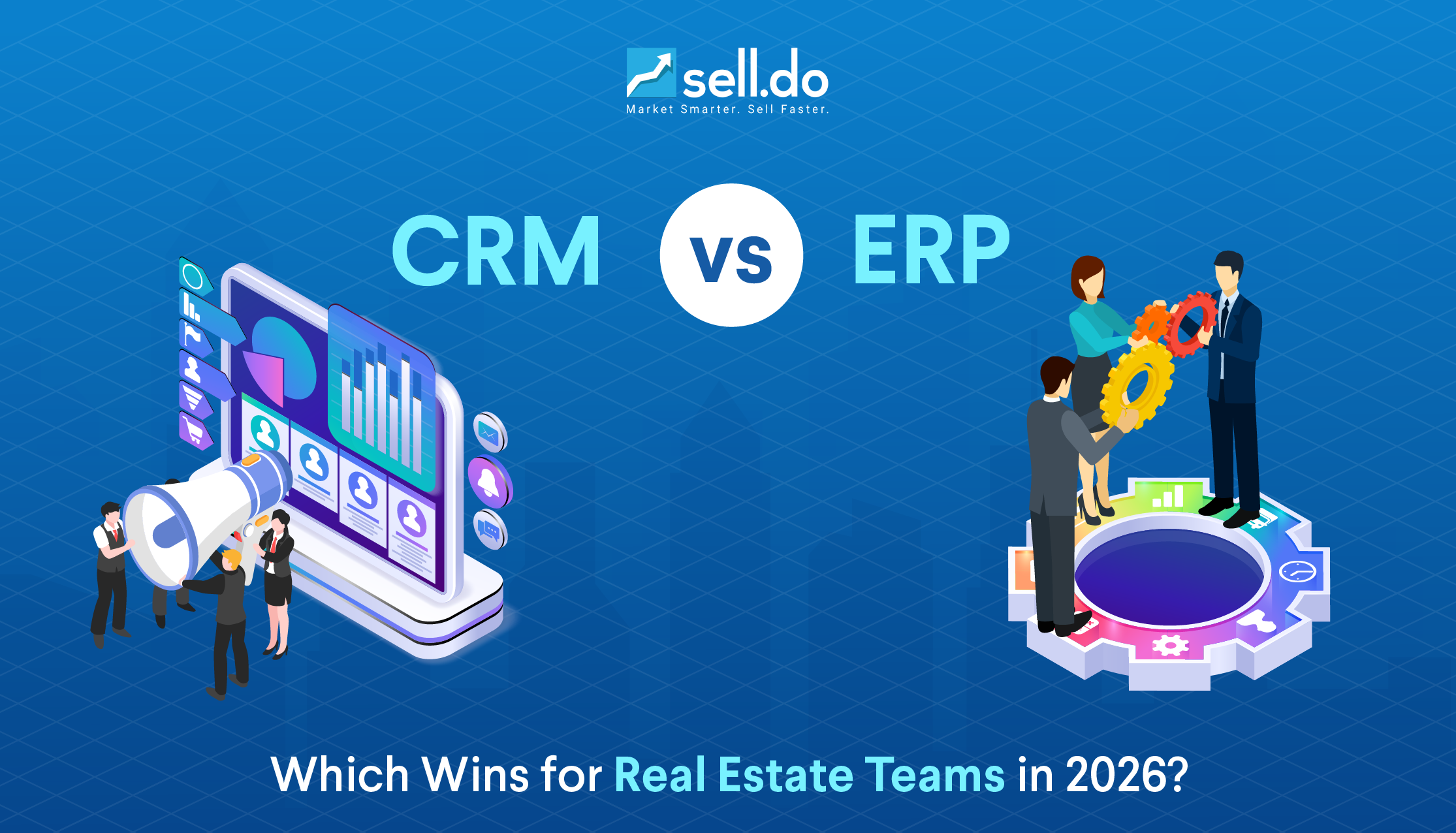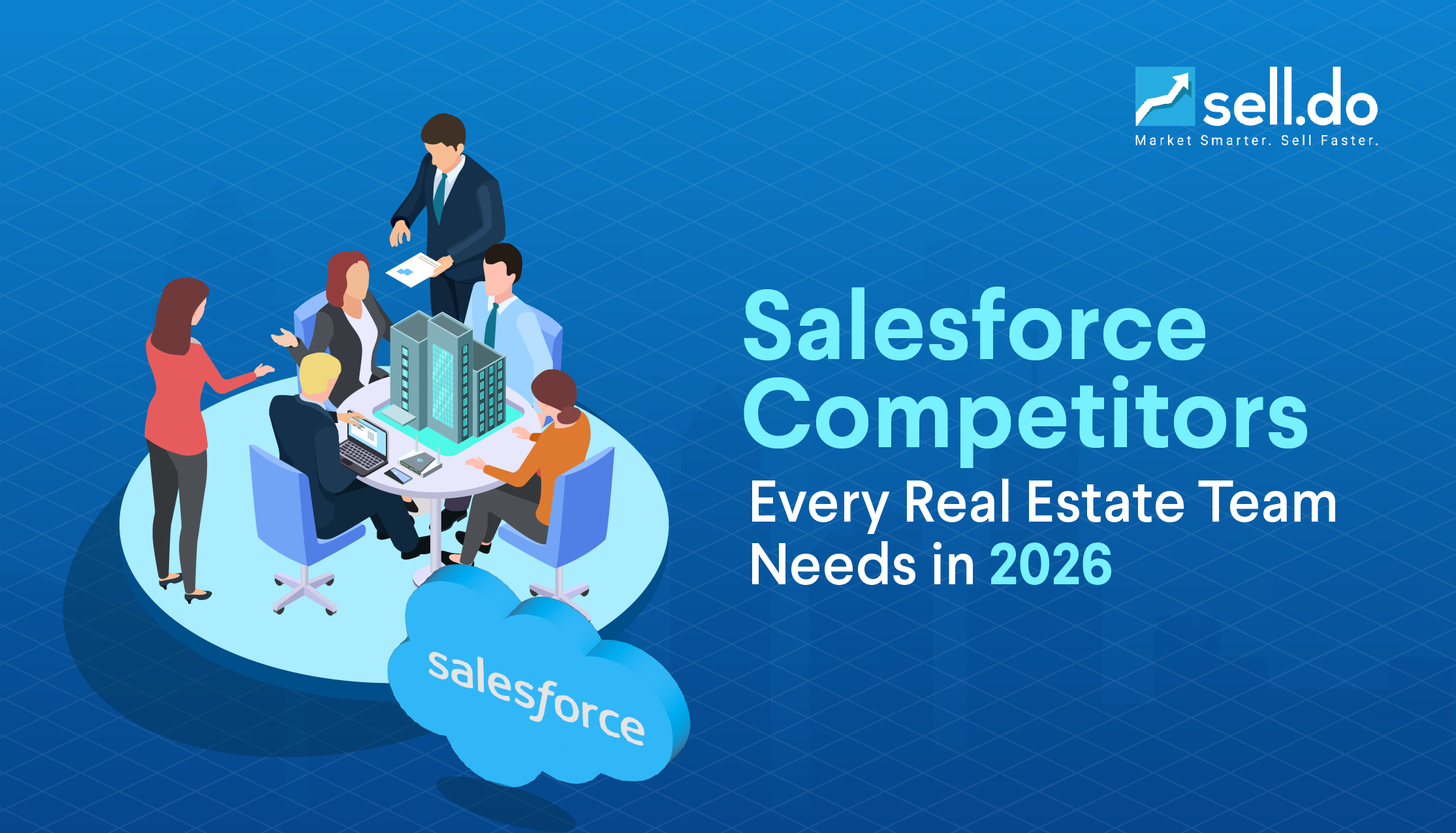Every industry professional knows that generating leads is not easy. As per Ruler Analytics, 91% of marketers say that lead generation is their most important goal. And when it comes to the real industry, success hinges on your ability to generate, manage, and convert leads efficiently. The customer buying cycle is lengthy and full of many considerations that make improving and managing lead generation even more important.
However, for real estate stakeholders, the helping hand from the technology has made things easier. Managing leads on Excel Spreadsheets or scrolling through long lists of databases is a thing of the past. Modern real estate organizations are turning to Customer Relationship Management (CRM) software to gain an edge.
Through this blog post, Sell.Do will show you how to make the most of CRM software, helping you supercharge your lead generation. Learn how these efficient systems can help you effortlessly track, qualify, and nurture leads, guiding them towards becoming satisfied homebuyers or sellers.
A CRM empowers you to:
Here are the crucial elements that can form your lead nurturing in such cases:
-
Capture the Right Leads:
Real estate CRM software provides a centralized platform to track leads efficiently. Gone are the days of sifting through stacks of business cards or endless email threads. With CRM, you can capture and store leads' contact information, preferences, and interactions in one place.
-
Determine and define the sources of your leads:
CRM software helps you pinpoint where your leads are coming from, whether it's through your website, social media, referrals, or other channels. This invaluable insight enables you to focus your marketing efforts and resources on the most effective lead sources.
-
Input and assign leads amongst your teams:
With CRM, you can seamlessly input new leads into the system and assign them to the appropriate team members or agents. This ensures that no lead falls through the cracks, and everyone knows their responsibilities in nurturing and converting these prospects.
-
Prioritize amongst your leads:
Not all leads are equally promising, and CRM software allows you to assign priority levels based on lead characteristics. For instance, a lead who has expressed urgency to buy or sell a property can be marked as a high-priority lead, prompting immediate attention from your team. This prioritization maximizes your team's efficiency and increases the likelihood of closing deals with the most promising prospects.
-
-
Lead Qualification:
Lead generation CRM enables you to qualify leads by categorizing them based on criteria such as budget, location, or urgency. For instance, if a lead expresses a strong interest in a high-end luxury property, your CRM can automatically assign them a "hot lead" status. This segmentation ensures that you allocate your time and resources wisely, focusing on the most promising prospects.
-
Lead Nurturing:
Effective lead nurturing is vital in real estate, where buying decisions often take time. CRM systems facilitate personalized communication with leads through automated email campaigns, newsletters, and reminders. Imagine a scenario where a real estate lead has shown interest in a specific neighbourhood but isn't ready to buy.
Your CRM can send them periodic updates on new listings and market trends, keeping your brand top-of-mind until they are ready to make a move.- Segmentation
- Email Campaigns
- Multi-Channel Engagement
- Personalization
- A/B Testing
- Feedback Loops.
-
Data Analysis:
Real estate lead generation isn't just about data collection; it's also about data analysis. These systems offer powerful analytics tools that allow you to gain insights into lead behaviour and campaign performance.
Here are the key factors to consider when performing data analysis with respect to lead generation:- Data Collection and Integration
- Data Quality
- Property Analytics
- Customer Segmentation
- Predictive Analytics
- Customer Engagement.
-
360º Lead View:
A robust CRM system provides a 360-degree view of each lead. This means you have access to their entire interaction history with your business, including calls, emails, property inquiries, and preferences. This comprehensive view empowers your agents with the information they need to have meaningful and personalized conversations with leads, fostering trust and increasing the likelihood of conversion.
You can use the following factors to keep a complete view of your real estate leads:- Demographic Information
- Contact Information
- Behavioural Data
- Historical Interactions
- Purchase History
- Communication History
- Preferences.
In Conclusion:
In the cutthroat real estate market, lead generation is the cornerstone of success, and real estate CRM software is the ultimate tool to harness its power. By seamlessly tracking, qualifying, and nurturing leads, you can maximize your chances of turning prospects into satisfied clients. The benefits are clear: improved efficiency, enhanced lead management, and increased conversion rates.
As you venture into the world of real estate CRM software, remember that choosing the right system tailored to your needs is essential. Invest in Sell.Do CRM system streamline your real estate business and boost your success in this highly competitive market.






Leave a comment
Comments (0)
Be the first one to comment.